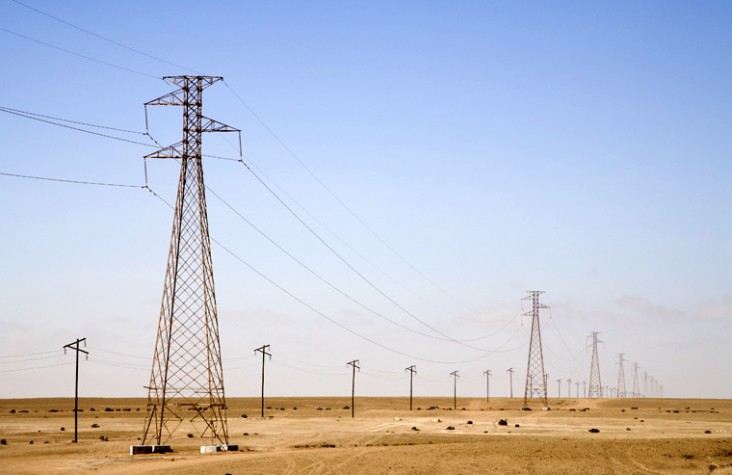Speeches Shim

Transition from government-owned, vertically-integrated sector to privatized, wholesale market by targeting loss reduction and expanding its customer base.
Since its return to civilian rule, Nigeria, now sub-Saharan Africa’s largest economy, has had unprecedented rates of GDP growth, on average above eight percent a year. The Power Holding Company Nigeria Ltd.(PHCN), and its predecessor the National Electric Power Authority (NEPA), were vastly underequipped to respond to these levels of growth, resulting in persistent periods of load shedding, restricted access to power for many of Nigeria’s businesses, high levels of corruption, and aggregate technical and commercial (ATC) losses of more than 35 percent each year. By the end of the 1990s, NEPA was bankrupt and in need of repair. Acting upon the 1988 Commercialization and Privatization decree, the Government of Nigeria (GoN) planned a large-scale privatization of nationally owned generation, transmission, and distribution utility assets. The goals of this unprecedented and sector-wide reform effort were to improve utility performance to meet the country’s growing electricity demand, to attract private sector investment to establish a more competitive market structure, to set up an independent regulator, and to promote transparency and efficiency within the sector.
The Bureau of Public Enterprises, on behalf of the Federal Government of Nigeria, fully executed share sale agreements and concession agreements for the entities in a set of landmark transactions totaling $2.5 billion. The evaluation committee tendered the winning bids based on the proposed level of investment in ATC loss reduction over a five-year period and proposals to expand customer access.
The comprehensive reform was based on a market restructuring which would transition the fully-integrated, government-owned NEPA into a competitive electricity market. The first step took place in 2000, when the government appointed the Electric Power Implementation Committee to prepare and oversee the National Electric Power Policy, which passed in 2001, and the Electric Power Sector Reform Act (EPSRA), which passed in 2005 with ambitious goals for the sector, including committing to 40,000 MW of electricity generation by 2020. These policies provided clarity to stakeholders and investors, established an independent regulatory agency, and delineated the responsibilities of various sector entities through the progressive stages of reform.
The process accelerated after the establishment of the Nigerian Electricity Regulatory Commission (NERC) in 2007, pursuant to the EPSRA, which was then given responsibility for all of the sector’s regulatory actions. The same year, NEPA was restructured into the Power Holding Company of Nigeria (PHCN), a holding company consisting of 18 ring-fenced subsidiaries, including the generation companies (GENCOs) and distribution companies (DISCOs) to be privatized along with the Transmission Company of Nigeria (TCN) which was to remain a state-owned entity under a private sector management contract. The NERC and DISCOs negotiated a multi-year tariff order, created the regulatory foundation for market transitions, and integrated the framework set out by the EPSRA to establish independent market entities for eventual private sector participation.
Following the establishment of the PHCN and development of market structures, the government of Nigeria began a large-scale procurement process, inviting tenderers for all the GENCOs and DISCOs through an initial pre-selection process to ensure the financial and technical capabilities of the bidders. The formal bidding opened on September 25, 2012 for the seven GENCOs and October 16, 2012 for the 11 DISCOs. Bidders were evaluated on the following criteria: their ability to pay 51 percent of the company value as determined in the Multi-Year Tariff Order, and their plan to meet the technical targets specifically devised for the generation and distribution sectors. For the eleven privatized DISCOs, the evaluation committee tendered the winning bids based on the proposed level of investment in ATC loss reduction over a five-year period, and proposals to expand customer access. The evaluation committee selected the proposals for the highest non-technical loss reduction investment activities deemed technically feasible.
On February 21, 2013, the Bureau of Public Enterprises, on behalf of the Federal Government of Nigeria, and the preferred bidders for 15 of the 17 companies created from the Power Holding Company of Nigeria, fully executed share sale agreements and concession agreements for the entities in a set of landmark transactions totaling $2.5 billion. When the new owners took possession of the DISCOs, they set out to execute the plans for investments to improve equipment, management, and training in order to meet the targets which were set during bidding and evaluation.
Many of the privatized assets, including the DISCOs, were found to be in worse condition than originally set forth during the bidding and tendering process. As a result, the loss reduction targets came under scrutiny by the new owners after they realized that many of the assumptions were the result of unreliable data and accounting. This presented a serious challenge to the program’s success. Recognizing that data collection was vital to the success of the program, NERC commenced a comprehensive program to develop accurate baseline data and an accompanying database that would allow the new owners to formulate an actionable path towards reasonable loss reduction targets.
Nigeria’s growing economy is currently constrained by lack of affordable, reliable, financially viable, and environmentally sustainable power. While it is still too early to fully evaluate the impact of private sector participation on the electricity sector, the successful transfer of nearly the entire power sector from public ownership to private management is unprecedented in the developing world and took considerable planning, effort, and coordination by the Government of Nigeria. The hope is that this private management will, over the long-term, ensure that the benefits of the reformed sector (i.e. improved reliability and low but sustainable prices) are passed through to all customers in a way that improves their economy and livelihood.

Comment
Make a general inquiry or suggest an improvement.